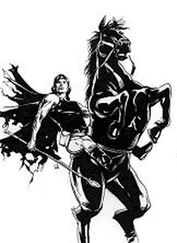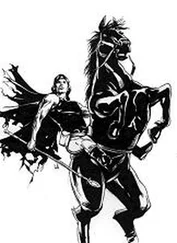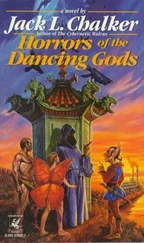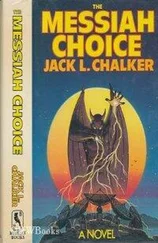Jack Chalker - Priam's Lens
Здесь есть возможность читать онлайн «Jack Chalker - Priam's Lens» весь текст электронной книги совершенно бесплатно (целиком полную версию без сокращений). В некоторых случаях можно слушать аудио, скачать через торрент в формате fb2 и присутствует краткое содержание. Год выпуска: 1999, ISBN: 1999, Издательство: Del Rey / Ballantine, Жанр: Фантастика и фэнтези, на английском языке. Описание произведения, (предисловие) а так же отзывы посетителей доступны на портале библиотеки ЛибКат.
- Название:Priam's Lens
- Автор:
- Издательство:Del Rey / Ballantine
- Жанр:
- Год:1999
- ISBN:0-345-40294-4
- Рейтинг книги:3 / 5. Голосов: 1
-
Избранное:Добавить в избранное
- Отзывы:
-
Ваша оценка:
- 60
- 1
- 2
- 3
- 4
- 5
Priam's Lens: краткое содержание, описание и аннотация
Предлагаем к чтению аннотацию, описание, краткое содержание или предисловие (зависит от того, что написал сам автор книги «Priam's Lens»). Если вы не нашли необходимую информацию о книге — напишите в комментариях, мы постараемся отыскать её.
Priam's Lens — читать онлайн бесплатно полную книгу (весь текст) целиком
Ниже представлен текст книги, разбитый по страницам. Система сохранения места последней прочитанной страницы, позволяет с удобством читать онлайн бесплатно книгу «Priam's Lens», без необходимости каждый раз заново искать на чём Вы остановились. Поставьте закладку, и сможете в любой момент перейти на страницу, на которой закончили чтение.
Интервал:
Закладка:
The priest sighed. “I cannot morally sanction such an action, yet I understand your position. I will stay. It is probably for the best anyway, as I can’t possibly swim with this arm. If he dies, I shall give him last rites and a Christian burial and then I will try and find what remains of my people to restore God’s mercy to them. If he lives, we shall go together.”
N’Gana shrugged. “Suit yourself. But be aware that Sergeant Mogutu was never a Christian. At best we might call him a lapsed Moslem.”
“Colonel—it is the same God.”
“I suppose it is at that. Very well. We’ll leave what we can here for you, but that’s precious little.” He stood, looking down at his longtime companion, and for a moment there was a slight quiver in the lip, a stray trace of emotion in a man who considered it a weakness. He then stood erect, saluted the unconscious sergeant, and walked away toward the others.
“Come, then! We have a river to cross!” he announced.
Neither Harker nor Kat Socolov liked leaving the two behind, but there was little that could be done and, as N’Gana said, it was the mission that mattered. All of them were expendable if those codes could be broadcast.
Now they stood by the riverbank looking out and trying to guess a possible route.
“It’s a young river,” the anthropologist noted. “In fact, I’d say it hasn’t been here for very long at all. Possibly it’s another that’s shifted its course, but it’s clear that very little has been dug out. You can see where some trees and even bushes poke out of the water.”
“Yes, but how deep is it?” N’Gana asked rhetorically. “If the tall grass was typical in height, so if we see the top fifteen centimeters of grass then we can assume the river is no more than two, maybe two and a half meters deep in that area.”
“Shallower, I think,” Harker said, looking out at the expanse. “Lots of mud bars, whole areas of minor silt build-up, and even some rises that are original and still above water. Our big problem, I think, won’t be the depth but rather that it’s so damned muddy we can’t see what we’re walking on.”
N’Gana nodded. “Let’s walk up a bit. There seems to be more of the original slope still—”
His voice trailed off, and his hand instinctively went to the gun barrel truncheon around his waist. The others made similar moves as they saw what the colonel had suddenly spotted.
“I didn’t hear anything at all,” Harker whispered. “Where in hell did they come from?”
“They’re not like those others,” the anthropologist noted. “They look like kids. Kids out of some text on ancient human origins, but kids.”
The two girls and a boy presented a bizarre sight. Burned a deep leathery brown by the sun, with long, stringy hair and wearing only ornaments of stone and bone, they nonetheless showed scars of a harsh and violent life. What was most striking was that their bodies bore elaborate mosaiclike tattoos that seemed designed to eventually cover them. The boy had the most, up both legs and on his stomach and back as well.
“Hello!” the boy called to them, apparently unafraid. “What Family are you from? We have been searching for someone for many days!”
The speech was oddly accented, with certain differences in tone, pronunciation, and emphasis, but it was clearly based on the Standard tongue the others all knew and understood. If anything, it was more familiar than they had expected.
“We are from different families,” Socolov responded, trying to sound calm and friendly. “But we are here working for and representing a family called Karas.”
All three of the natives looked astonished. “That is impossible!” the boy said at last. “We are of the Karas Family, and we know everyone in it!”
The anthropologist thought for a moment. Clearly “family” to them was synonymous with “tribe.” Just how much did they know of their past?
“We are not of the family that stayed and survived,” she told him. “We are of the ones who left the world before it was conquered.”
The boy was thunderstruck. “You are from—up there?” She smiled and nodded.
And then he said, in a tone of wonderment that made them all feel a true sense of what had been lost here, “We did not believe you would ever come back for us.”
NINETEEN
The Desolation at Sparta
A day that was to have been spent in struggling against a river instead was spent in a long session of mutual discovery and information exchange.
Of course, the experience of the three young people—indeed, their whole view of the cosmos—was quite skewed, but the newcomers had been on Helena and discovered some of its ugly surprises. Now they discovered more, but the mere existence of these kids also meant the discovery of hope.
Father Chicanis, who had thought himself entirely alone only hours before, now tried to discover from the locals some sense of family connection, some familiar name in the genealogy. The problem, of course, was that the old family structure had broken down before the trio was born. For them, relationship to the community was far more important than relationship to parents or more distant ancestors.
Chicanis was also upset with their view of Christian theology, even though they said they had been led by a priest.
“Father Alex kept saying it was wrong to live the way we were,” Littlefeet told him, “but Mother Paulista and the rest said it was the only way to make sure we survived. I dunno which of ’em was right. I don’t even know if any of ’em are left alive now. If they are, they’re trapped on the other side of that new river.”
Harker was most startled that the trio had seemed to have no fear of them. “People do not harm other people,” Spotty responded matter-of-factly. “Families must all help each other or we all die.”
Father Chicanis found them fascinating. “In an existence where normal human beings are suspended in a kind of basic loop, where possessions mean nothing and there is a permanence only of companionship, the only things of value left seem to be spiritual values. It almost makes one think that, in a sense, the continent of Eden is closer to the original than one might think.”
“The original Eden didn’t have genetically engineered killers stalking around,” Colonel N’Gana noted.
The young people were fascinated by N’Gana; they’d never seen anyone of African ancestry, which indicated that Helena’s cosmopolitan nature hadn’t survived. Even more astonishing to them was Hamille, of course; they couldn’t keep their eyes off the alien creature, who seemed not at all interested in them.
The other offworlders, though, were surprised and fascinated by every gesture and every bit of knowledge that the young people displayed. It was somewhat startling for them to watch some of the middle-sized beetlelike insects and flying things be picked out of the air and just popped into the mouth. The women also showed a pretty fair knowledge of basic chemistry, whether preparing a dried cake from mixed stone-ground grasses and ground-up insects, or salves that could numb and perhaps do more on wounds and bites. Clearly it wasn’t just the physically fit and ruthless who survived; some very smart people had created a system that worked, and had done so from scratch while trying to survive themselves. Of them all, only Kat Socolov seemed less surprised than impressed. A good anthropologist always knew the difference between tribal knowledge and superstition, and the first thing you had to do in that field was get it out of your head forever that ignorance meant stupidity.
Still, only Colonel N’Gana was willing to try the insects a la carte. He prided himself on his survival training. The cakes, however, were palatable, and filling, if not exactly delicious.
Читать дальшеИнтервал:
Закладка:
Похожие книги на «Priam's Lens»
Представляем Вашему вниманию похожие книги на «Priam's Lens» списком для выбора. Мы отобрали схожую по названию и смыслу литературу в надежде предоставить читателям больше вариантов отыскать новые, интересные, ещё непрочитанные произведения.
Обсуждение, отзывы о книге «Priam's Lens» и просто собственные мнения читателей. Оставьте ваши комментарии, напишите, что Вы думаете о произведении, его смысле или главных героях. Укажите что конкретно понравилось, а что нет, и почему Вы так считаете.












